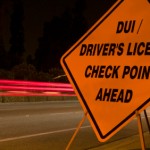When I was a Veterans Administration Research and Education fellow (1970-1972) working inTorrance, CA, at Harbor General Hospital, I volunteered at the Long Beach Free Clinic once or twice a week to keep up my clinical skills. One evening I made an emergency "house call" across the street from the clinic at the headquarters of the "Peace and Freedom Party." I didn't know anything about that group, but as I attended to the ill member of the Party, I realized that many of those in the rooms I passed through were smoking pot.
It was clearly an illegal drug then, even in California, but my role there was that of a physician, not a policeman, so I just took care of my patient, eventually calling an ambulance to take him to a local hospital.
Fast forward to the 21st century.
Now a Colorado state amendment has legalized the drug as of December 10, 2012 with 55% of voters approving use, possession, cultivation and distribution by anyone 21 and older. A group called "Sensible Colorado" has outlined the development of Colorado laws regarding pot. As of March 1, 2013 a state task force on recreational marijuana has recommended special sales and excise taxes on it as well as rulings barring smoking it in bars, restaurant and social clubs. The group also said the plant should only be grown indoors, but could be sold to those visiting from out of state and given away, an ounce, at a time to adults.
In late February the Colorado House Judiciary Committee unanimously passed a Marijuana DUI bill, setting a 5 nanograms (ng) per milliliter of blood as the THC level as which a person could be ticketed for driving while impaired.
In past legislation, the 5 ng limit was considered a “per se” limit, which meant that if a driver’s blood level is 5 ng per milliliter of whole blood, the driver is assumed to not be in a fit state to drive safely. Similarly a driver's blood alcohol content (BAC) of .08 per milliliter is sufficient to issue a DUI ticket.
HB 1114 states that in a marijuana DUI prosecution , a jury may "infer" that a defendant was under the influence with a 5 ng level, but that defendant has the opportunity to prove that he/she was not impaired.
The 5 ng limit is based on the amount of active THC (delta 9 THC) in whole blood, This form of THC functions for a short period of time following ingestion, typically from two to four hours. Latent THC, the kind that remains in the blood after active THC has dissipated, can remain in the blood for days after ingestion, according to a toxicology expert who testified in the Colorado hearings on the subject.
A High Intensity Drug Trafficking Areas (HIDTA) website comments that 9% of Washington eighth grade students, a fifth of 10th graders and over a quarter of seniors in high school are current marijuana users. Teen drivers are involved in motor vehicle accidents (MVAs) disproportionally and data strongly suggest that marijuana users who drive have significantly increased rates of increased rates of MVAs. The combination of teens smoking pot and then driving is scary.
Tags: Colorado amendment 64, DUI, federal law versus state laws, marijuana controversy, Marijuana DUI laws, marijuana-associated health issues, recreational marijuana use, Washington state initiative 502


